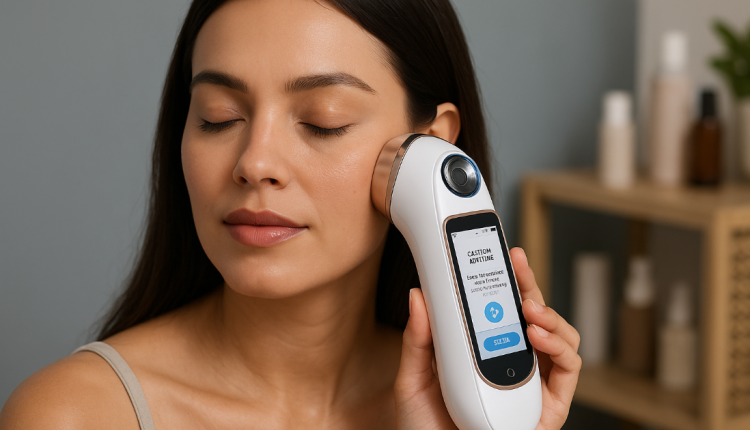As the beauty industry continues to evolve, 2025 marks a significant turning point where innovation, sustainability, and personalization converge to redefine standards of beauty. Consumers are increasingly seeking products that not only enhance their appearance but also align with their values and lifestyles. This shift is driving brands to adopt cutting-edge technologies, eco-friendly practices, and inclusive approaches to meet the diverse needs of modern beauty enthusiasts.
Technological Advancements in Beauty
AI-Powered Personalization
Artificial Intelligence (AI) is revolutionizing the way consumers interact with beauty products. AI-driven tools analyze individual skin types, preferences, and concerns to recommend personalized skincare and makeup solutions. This level of customization ensures that consumers receive products tailored to their unique needs, enhancing efficacy and satisfaction. Brands are leveraging AI to create virtual try-on experiences, allowing users to visualize products before purchase, thereby reducing returns and increasing confidence in online shopping.
Augmented Reality (AR) Experiences
Augmented Reality is enhancing the consumer experience by providing immersive and interactive platforms. Through AR applications, users can virtually apply makeup, experiment with different looks, and receive real-time feedback. This technology not only entertains but also educates consumers about product application techniques and suitability, fostering informed purchasing decisions.
Sustainability and Ethical Practices
Clean and Green Formulations
The demand for clean beauty products continues to rise as consumers become more conscious of ingredient safety and environmental impact. Brands are responding by formulating products free from harmful chemicals, utilizing natural and organic ingredients, and ensuring transparency in labeling. This commitment to clean beauty reflects a broader trend towards health-conscious and environmentally responsible consumption.
Eco-Friendly Packaging
Sustainable packaging is gaining prominence as brands seek to minimize their ecological footprint. Innovations include biodegradable materials, refillable containers, and recyclable packaging solutions. By adopting eco-friendly packaging, companies not only reduce waste but also appeal to environmentally aware consumers who prioritize sustainability in their purchasing decisions.
Inclusivity and Diversity
Broadening Beauty Standards
The beauty industry is embracing diversity by celebrating a wide range of skin tones, hair types, and cultural backgrounds. Brands are expanding their product lines to cater to underrepresented groups, ensuring that everyone can find products that suit their unique features. This inclusive approach promotes self-expression and empowers individuals to embrace their natural beauty.
Gender-Neutral Products
The rise of gender-neutral beauty products reflects a shift towards inclusivity and the breaking down of traditional gender norms. Brands are developing formulations and packaging that appeal to all genders, focusing on functionality and personal preference rather than gender-specific marketing. This trend acknowledges the diverse identities of consumers and fosters a more inclusive beauty landscape.
Wellness and Holistic Beauty
Integrative Skincare
Holistic approaches to beauty emphasize the connection between physical appearance and overall well-being. Integrative skincare combines topical treatments with lifestyle practices such as nutrition, stress management, and sleep hygiene to promote healthy skin from the inside out. This comprehensive approach addresses the root causes of skin concerns and supports long-term skin health.
Mindful Beauty Practices
Mindfulness in beauty routines encourages consumers to be present and intentional in their self-care practices. Incorporating rituals such as facial massage, aromatherapy, and meditation into daily routines enhances relaxation and promotes a sense of well-being. This focus on mental health and self-care reflects a broader trend towards wellness-oriented lifestyles.
Conclusion
The beauty industry in 2025 is characterized by a dynamic interplay of innovation, sustainability, and inclusivity. Technological advancements are personalizing the consumer experience, while ethical practices and diverse offerings are reshaping beauty standards. As consumers continue to seek products that align with their values and lifestyles, brands that embrace these trends will lead the way in defining the future of beauty.


